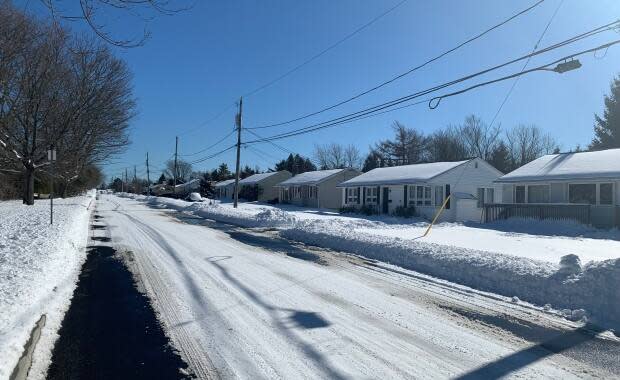New Brunswick property tax bills are out. Homeowners are hit the hardest — again

New Brunswick mailed out 460,242 property tax bills to landowners last week, seeking a record $1.48 billion in payments this year to help fund itself and 89 local governments.
And even after assessment, tax rate and municipality changes in 2022, the results for homeowners are pretty much the same as last year — the amount they are being charged is up.
"People aren't happy with it," Jim Bedford told CBC Information Morning in Saint John last week as the bills began arriving in his community.
Bedford is mayor of the new municipality of Fundy-St. Martins, where both assessment and tax-rate increases in the rural community established by the province have each raised what residents are being billed.
"We get nothing in return," said Bedford. "It's pay it and have a good day."

For the last two years, large increases in assessments, primarily on houses and apartment buildings, has been driving up tax bills on those properties all over New Brunswick.
Even in municipalities where local councils have been cutting property tax rates to offset the rise in assessments, bills to homeowners have still been climbing rapidly.
In part, that's because homeowners have to pay for discounts their local governments have to provide to many large properties in their communities that are provincially owned or funded.
In Moncton this week, property tax bills sent to the Dr. Georges-L.-Dumont University Hospital Centre, the Université de Moncton and the Moncton Campus of the New Brunswick Community College are down a combined $488,700 from what the three paid the city two years ago.
The discounts are the result of classifications in New Brunswick legislation that define certain large health and education related properties as "residential."
That entitles them to the same tax treatment as a house.
Over the last two years, Moncton has cut its residential tax rate 12.5 per cent to offset assessment increases residents have experienced on homes. But those assessments have risen as much as 50 per cent in some neighbourhoods and the result is tax bills on houses are rising anyway.

By contrast, many provincial government buildings, which have had only minor assessment increases over the last two years, are getting significant reductions in their bills by piggybacking on the residential tax cuts.
It's one of the reasons cities are asking the province to divide up tax categories into more precise groupings.
"We need increased tax classes," said Saint John Mayor Donna Reardon.
"We need to have that flexibility. If we need to tweak the tax rates then we can do that."
Like in Moncton, tax revenues to Saint John this year from properties like the Saint John Regional Hospital and the adjacent campus of the University of New Brunswick are down $236,885 from two years ago.

It's a consequence of a 9.2 per cent cut in the city's residential tax rate over the last two years. But while the cuts have driven down what the province has to pay the city on properties it owns or funds, it has only slowed tax increases flowing to homeowners.
On Creighton Avenue in east Saint John, the 52 houses on the street have received average assessment increases of 40 per cent over the last two years. That equates to an average tax increase of more than $600 per house, even with the city's tax-rate reduction.
Some of the houses have gotten those increases already and some with longer-term owners are having them phased in over the next three years, but every property on the street is getting a higher bill of some kind this year.
Overall in the city, residential properties are being billed $9 million more this year than two years ago.
Part of that is from new construction but most is from higher charges on existing properties. Reardon said it is important for cities to be able to better target where their tax cuts go.
In an email, spokesperson Vicky Lutes of New Brunswick's Department of Local Government said comprehensive reform of local government taxation is not planned until 2024, with implementation planned for 2025, although short-term measures have not been ruled out.
In 2022, the province created a new tax class for industrial properties. It partially ended a requirement that municipalities include commercial and industrial properties in any tax cuts granted to residential properties.
According to Lutes, more short-term reforms like that are under discussion with the province's municipal associations.


